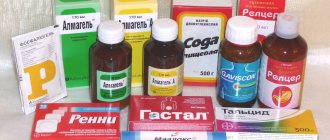Rotavirus is a fairly contagious disease that is easily transmitted from person to person. Most often, infection occurs when basic hygiene rules are not followed or food is not properly processed. This infection affects people of all ages, but children under six years of age are most susceptible to it. In large families, disease prevention becomes a particularly pressing problem, especially if there is already a sick person in the house. There are several recommendations on how to avoid becoming infected with rotavirus through contact with a sick person.
Main routes of transmission
Rotavirus is an infectious disease that is easily contracted through contact with a sick person or through other means. The main routes of infection look like this:
- Contact-household, in contact with a sick person or through things used by the patient.
- Food – through food products that are contaminated with a pathogenic microorganism. Most often these are vegetables and fruits that have not been washed properly.
- Aqueous – when consuming water that contains the pathogen. Such infection often occurs when swimming in open water in the summer.
Intestinal infection in some cases is very severe. The patient experiences high body temperature, nausea, vomiting and diarrhea. In addition, there is lacrimation, runny nose and sore throat.
Recognizing an intestinal infection is not difficult. If a person has a persistent digestive disorder, which is accompanied by signs of a respiratory infection, we can talk about rotavirus.
How to protect your child
Often the infection in children exists in an inactive phase , but its spread still occurs. In this case, it is necessary to observe all hygiene rules as much as possible, use antiviral drugs and limit communication with the patient.
The baby should be isolated for at least a week and a half. During this time, the room needs to be disinfected - wash clothes, boil dishes, wipe other items.
The virus is “afraid” of hot water, but cold water will not affect its activity in any way. Therefore, it is better to boil drinking water, baby bottles, pacifiers, toys, and pour boiling water over vegetables and fruits.
How long is a person contagious?
A person is considered contagious as long as he is sick. In addition, it releases pathogenic microorganisms for approximately two weeks after the acute symptoms of the disease have subsided. During this time period, it is quite possible to become infected with rotavirus through furniture or a toilet.
After the patient no longer exhibits symptoms of the disease, it is still necessary to observe enhanced hygiene measures for some time, treat all surfaces with a disinfectant solution and frequently ventilate the home.
What is rotavirus
Before talking about how to protect your body from a virus, you need to understand what it is and find out as much information as possible about how it affects the body, what routes it is transmitted, etc.
Rotavirus - this word in medicine refers to a whole group of viruses that infect the epithelium of the small intestine, each of which is extremely contagious. Rotavirus infection is also often called “stomach flu”; this name was obtained due to its mixed symptoms.
The clinical picture when the body is affected by rotavirus is nonspecific for most viral infections. Despite the fact that the pathogen mainly affects the mucous membrane of the mentioned part of the intestine, some of the clinical signs may resemble other types of viral infection, for example, ARVI.
The most common symptoms are:
- Nausea and vomiting.
- Diarrhea with watery stool.
- Abdominal pain.
- General intoxication of the body.
- Heat.
- Sometimes sore throat and runny nose.
It is also worth noting that rotavirus threatens children most of all, for several reasons:
- Children's immune systems are weaker than those of adults.
- Fecal-oral transmission of the virus (another popular name for the virus is “infection of dirty hands”).
It is also important to know that rotavirus is distributed throughout the globe and is capable of surviving for a long time in the external environment. Moreover, according to statistics, manifestations of rotavirus in children under two years of age are observed in 100% of cases, but parents and pediatricians mistake the disease for a regular attack of diarrhea against the background of some other disease.
How to protect yourself from rotavirus
To avoid becoming infected with rotavirus from a patient, you must follow certain rules:
- Provide the patient with separate dishes, towels and other items.
- Wash the infected person's dishes with warm running water and then pour boiling water over them or boil them.
- The towel is washed often; before washing, it is pre-soaked in a disinfectant solution.
- The person caring for the sick person should wear a gauze mask, change and wash their clothes regularly, and wash their hands frequently with soap.
- The bathroom and especially the toilet bowl are often washed with the addition of bleach.
- Floors and all surfaces are wiped many times a day with the addition of chlorine-containing products.
These measures prevent you from becoming infected with rotavirus infection, which greatly weakens the immune system.
Sanitary and hygienic measures for the prevention of rotavirus
Outbreaks of morbidity mainly occur in the autumn-winter period. How to protect your baby from infection? Despite the fact that rotavirus infection spreads at lightning speed, some preventive measures will not hurt and will help to somehow protect your baby from rotavirus:
- Hand washing. From an early age, the child should be taught that after using the toilet and coming home, he should thoroughly wash his hands with soap. Anyone who has been familiar with this rule since birth will never forget about it. In addition, children really like to follow a certain sequence of actions, so there is no need to force them to fulfill a request. It is enough to constantly wash your baby’s hands, and very soon he will reach for the washbasin.
- Disinfectant sprays and antibacterial wet wipes. These hygiene products may not provide a 100% guarantee of protection against rotavirus infection, but at least clean hands are a guarantee of health.
- Ventilation and quartz treatment. If one of the household members caught an illness or children in the garden began to get sick en masse, then these measures cannot be avoided. If there is no quartz lamp, then an aroma lamp or an air humidifier can be used as an alternative. Adding a few drops of fir or eucalyptus oil to the water will flush the air in the room and free it from pathogenic bacteria.
- Wet cleaning. During rotavirus outbreaks, the room should be cleaned as often as possible. Dry air and household items harbor many germs, which can be eliminated by regular floor cleaning and wiping down surfaces. The baby must be urgently protected from communication with the carrier, so it is better, if possible, to place him in a separate room.
- Prolonged boiling of clothes and dishes is also one of the preventive measures to protect against rotavirus. To protect yourself from rotavirus, textile items must be ironed - with prolonged exposure to high temperatures, the risk of infection is reduced.
- Thorough washing of vegetables and fruits, drinking only boiled water.
Unfortunately, all of the above sanitary and hygienic measures have been found to be ineffective in protecting children from rotavirus. They only slightly reduce the risk of contracting stomach flu. But despite this, those who follow these rules suffer from intestinal infections much less often.
A case of illness in a children's group
If a child who attends a kindergarten or school becomes ill, the teacher is notified. After this, a quarantine is introduced in the group or class, during which only healthy children are admitted, without the slightest sign of illness. Quarantine for rotavirus usually lasts two weeks, with the countdown starting from the last case of the disease. All surfaces that children come into contact with are washed well and treated with special products. In the bathroom, Genoa bowls and pots are treated with a concentrated chlorine solution.
Dishes for a group or class are allocated separately, and they are washed separately from the rest of the kitchen utensils. Bed linen and towels are changed frequently and washed with hot water.
During the quarantine period, new children, as well as those who were absent when the first case of infection was registered, are not admitted to the kindergarten or school.
If a nursing mother gets sick
If a nursing woman is infected with rotavirus, then in order to avoid infecting the infant with rotavirus, a number of rules must be followed:
- Avoid breastfeeding your child for the entire period of illness. You can temporarily transfer the baby to formula milk or express the milk and then boil it.
- If possible, step away from caring for your baby for a while. If this is not possible, then the woman puts on a gauze mask and washes her hands thoroughly before picking up the baby.
- The toilet, bathroom and kitchen are cleaned frequently.
- In the room where the child is, all surfaces are regularly wiped and the room is ventilated.
If possible, the sick mother is isolated in a separate room, and the care of the child is entrusted to the father and grandmothers. This approach will help prevent rotavirus from infecting a small child.
A nursing woman should remember to express milk during treatment. This measure will help maintain lactation and continue breastfeeding after recovery.
What to do if you have been in contact with a sick person
The incubation period of rotavirus can vary significantly and range from several hours to a week. It depends on the person’s immunity and the presence of certain chronic diseases. Due to this incubation period, a person does not yet know that he is sick and continues to be in contact with a wide range of people. If a person finds out that someone in his social circle has contracted such an infection, he begins to worry and think about what to do.
To prevent rotavirus infections in adults after direct contact with patients, you can take antiviral drugs - Groprinosin, Isoprinosin or Arbidol. In most cases, this measure allows you to avoid intestinal infection.
Rotavirus vaccinations are a good preventive measure. They are done several times, and this is enough to protect yourself or your child from the disease for a couple of years.
Symptoms of rotavirus
The incubation period of rotavirus infection (the time from the moment of infection to the appearance of the first symptoms) is generally from 1 to 5 days, but most often symptoms appear on the first day after the pathogen enters the body.
The disease usually begins acutely: the patient develops severe cramping abdominal pain, diarrhea (from 3 to 20 or more times a day depending on the severity of the disease), vomiting up to 5 times a day, bloating, increased body temperature above 37-38 degrees and higher, general weakness and malaise, loss of appetite.
The virus multiplies in the mucous membrane of the gastrointestinal tract and is then excreted in the feces. The main danger of rotavirus is possible dehydration due to severe diarrhea and vomiting.
Precautions in healthcare settings
If the rotavirus is severe or the child is too small, the patient is admitted to a hospital. To prevent cases of the disease among other patients, the following measures are observed:
- Patients with rotavirus are placed in separate boxes or half-boxes, but in the latter case, there should be people with the same diagnosis in both wards.
- Restrict the movement of patients with intestinal infection along the corridors.
- The wards are often washed with disinfectants and quartzed.
To prevent a large number of people from getting sick in the infectious diseases hospital, rotavirus patients are housed in a separate wing. If this condition is not met and such people are in close proximity to other patients, then this threatens an outbreak of infection.
Treatment of rotavirus infection
Viruses in the patient’s body settle inside cells, so it is impossible to act directly on such a pathogen, which means there are no specific drugs that could kill rotavirus.
Methods of treatment aimed at the pathogen have not been developed, and in the near future, most likely, drugs whose mechanism of action would allow them to penetrate into the cell and destroy the virus will not appear.
It does not matter what viruses the body is infected with; immunomodulators are prescribed in any case. Until scientists discover a specific drug, all hope lies in the body's immune system. In order for the patient’s body to cope with the infection, it needs favorable conditions.
The doctor may prescribe drugs to boost immunity, as well as drugs for symptomatic therapy, but the key to successful treatment is the patient’s rest and sufficient fluid intake to prevent dehydration.
The patient should be in a well-ventilated area, where daily wet cleaning is carried out using disinfectants. In mild cases, treatment can be carried out at home; in severe cases, hospitalization is required.
Gastroenterologist, doctor of the highest category, head of department. She graduated from the Rostov Order of Friendship of Peoples Medical Institute in 1993. Place of work: Clinical and diagnostic.
Basic preventive measures
To avoid getting an intestinal infection, you should adhere to basic hygiene rules:
- Wash your hands often, especially after going outside and using the toilet.
- Boil drinking water or purify it in other ways.
- When swimming in ponds, try not to open your mouth.
- Wash fruits and vegetables well and then pour boiling water over them.
Rotavirus infection is diagnosed very often in both children and adults. When treatment is started on time, it does not cause complications and disappears without a trace in a few days. It is very important to organize a good drinking regime for a sick person to replenish lost fluid.
Rotavirus in children
In children, the disease has its own specifics. In young patients, as in adults, all intestinal symptoms can be expressed, but often they are accompanied by damage to the ENT organs. Sore throat is a common symptom accompanying rotavirus infection in children. A runny nose also appears, and cases of otitis media are not uncommon.
The disease poses a particular danger to infants. Rapid dehydration leads to metabolic disorders, and inaction in this case can be fatal. Therefore, when refusing breastfeeding, it is necessary to give the child something to drink; in severe cases, the doctor prescribes intravenous infusions of solutions that restore fluid exchange in the baby’s body.
Children often become infected with rotavirus infection because they still have little control over themselves, put dirty hands in their mouths, and examine unfamiliar objects. Children are inquisitive, spontaneous and not fully accustomed to hygiene, so their contact with infection is more likely. In addition, the immune system of children is not formed, so a child is more likely to become infected with rotavirus than an adult.








